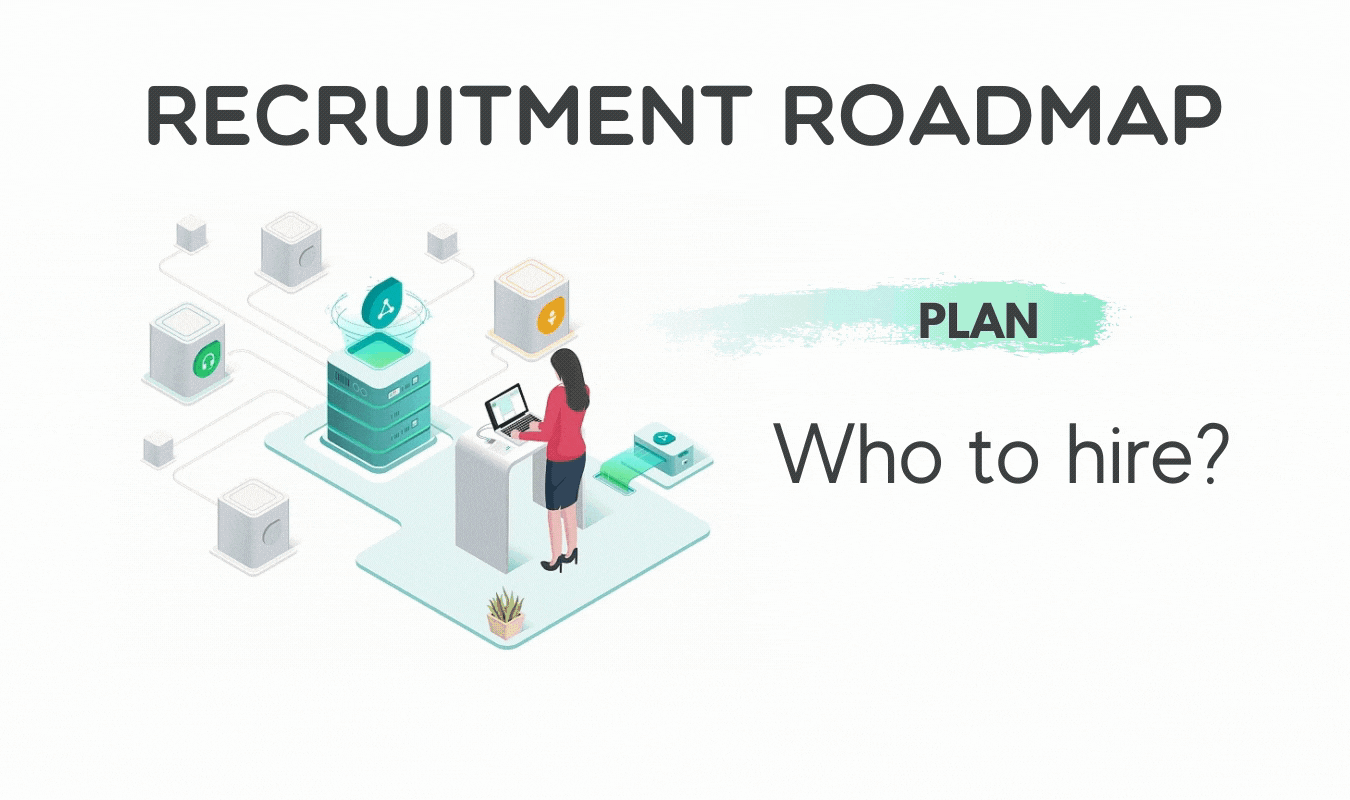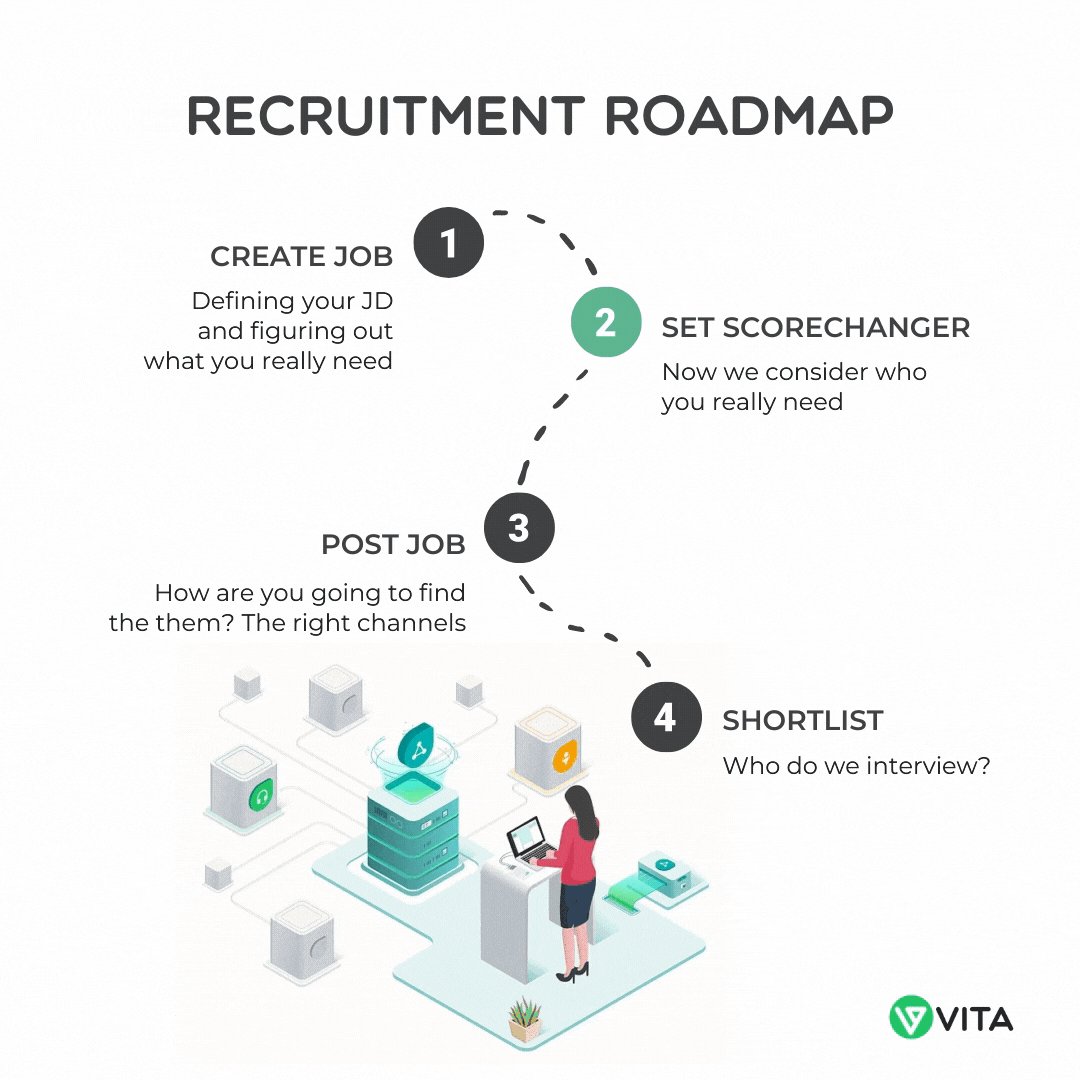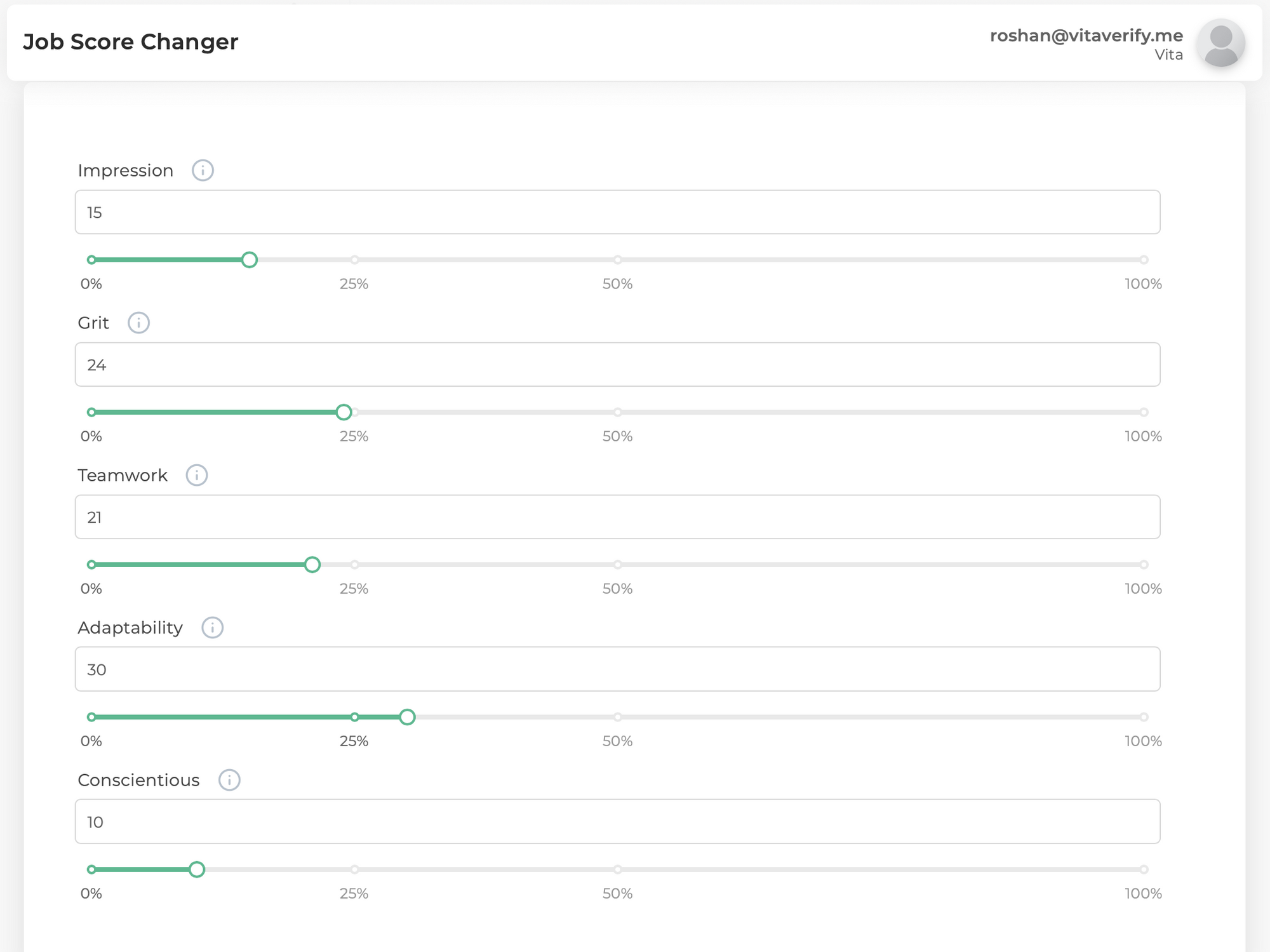Planning - 3 key considerations
Actionable considerations to guide you along the recruitment process. We've found these 3 elements sum up what you need to look at.

This is the second step in a 4 part series on Recruitment screening. Here we look at deciding who we really need.

What we call a ScoreChanger is essentially the requirements you take into consideration when deciding who to consider out of a large candidate pool. These consider their attributes and key strengths, to identify the fit that makes them succeed in the long term in a company.
We've automated and de-biased this process, if you've been routed here from our ScoreChanger page, you're probably already aware of the system in place and the basic mechanisms of how it functions. To summarise: the ScoreChanger sets the modus upon which we calculate each candidate's fitment score. Taking into consideration several hundreds of data points, weighed in multiple factors from the relationship to the referee, to the discernibility of referee's identity, the length and content of replies, and multiple other implications.
(p.s. in case the word ScoreChanger means nothing to you, this article serves you as more of a cultural guide, in whatever way you go about assessing individuals before an interview. We implore you to look beyond Resumes, at the humans they represent.)
What we then need to know is what to consider when deciding what goes into the ScoreChanger.
We've summarised this, a framework, to help you decide what to put into your ScoreChanger, in the following few considerations:
(Note. this is just a guide to better understand your needs, and the tools at your disposal)
Culture
Hinting at the Overall culture of the company.
You might want to consider the cultural requirements of the company as a whole. As an early-stage startup, with only a few members in your team, there might tend to be some overlap/ambiguity between job roles. To account for this, you may consider allocating more resources towards adaptability.
For a scaling/growing startup, things tend to get a bit more difficult, coordinating between members and teams, while ensuring operations run smooth, might require quite a bit of Teamwork and Coordination.
Nuances of culture we found, vary from organisation to organisation, much like a fingerprint. As a founder, it is worth considering the kind of environment you want to create, and break this down into actionable recruitment values by deciding where to stress more on, as a blanket for your company. If you aren't sure what your culture is, we highly recommend this article.
Role specific
Rather straightforward, would be deciding the requirements of roles. Our suggestions are as follows, feel free to consider how you want certain parts of your organisation to behave.
Certain attributes are very clear, such as conscientiousness needed in a clerical/administrative task like accounting, versus the need for Communication and Impression in a sales / customer-facing front end role.

Seniority
Last but not in any way the least, Seniority. Seniority refers to both that of the individual being hired and the company in its journey.
Let's break this down. An individuals seniority comes from their progress in their career. What that means is a fresh graduates' requirements to complete a particular role vary from a Senior VP or C-Suite person, even if they're both in sales. At a senior position, roles revolve more around leadership, communication, creating teams and motivating them. An entry-level salesperson needs that undying grit, to push excessively in the tasks they engage in an above all else, give every potential client a great impression of the company.
One last aspect we recommend you consider is the stage at which your company is at (i.e. Seniority in a companies life cycle). What a particular role does at a Startup varies quite vastly with what the same job title might imply at a Multinational Corporation.
The seniority of roles differs across various verticals. Recently we've seen more advanced companies at later stages, with vast reach across the globe prefer to identify traits according to job family and seniority. These would create multiple templates for each use-case, sorted by the 2 identified considerations.
To conclude, while we've identified these key considerations, we encourage tweaks to include a holistic assessment. I wanted to mention some of our favourite uses we've seen our clients implement for specific scenarios. They've explored innovate ways to use the tools at their disposal we live for stories like these:
- Mode of work - Remote work requires higher amounts of communication as well as a more independent work, requiring lesser supervision. Details of both of this can be found inside the reference report of each individual.
- Diversity of teams - We've seen the use case of looking for people different from existing members in a team. While putting similar people together in a team is proven to boost morale and create closer relationships between team members, the cost of this, at scale, would be too many similar people. Without vastly different thought flows, an environment of creativity and innovation may not be fostered with similar personalities.
Now that you know how the ScoreChanger works, see how it plays out in a hiring process here.
Apply the above and you'll be fast on your way to unlocking the hidden power of screening.
Note.
To sum it up, here's an example of some of what we used in our hiring process:

As a blanket, for our company, we believe no individual should have Grit lower than 15%. It's a value we strongly believe in and have been told to exhibit ourselves. We've seen individuals strong in this area tend to work well with us as a team.
Now that you know what you need and who you need, where do you find them? Find out in step 3.
